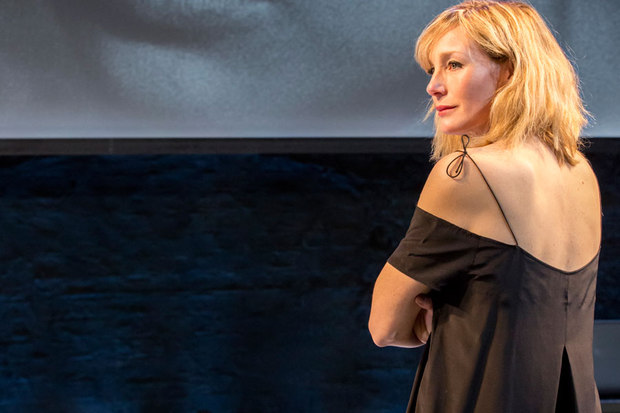When I was a kid, I was taught by a kindly old Jesuit whose youth had been beguiled by George Bernard Shaw. The provocative ironies of ‘GBS’ were quoted everywhere and he was, for several decades, the world’s leading public intellectual. But as a schoolboy I found it hard to assent to the infatuations of my elders and though I relished Shaw’s aphorisms (‘we learn from history that we learn nothing from history’) I conceived a suspicion that he was smug and overrated. A babbler. Perhaps even a bore. Man and Superman, rarely revived at full length, offers us GBS with all the taps running. Imagine Fry, Brand and Norton rolled into one and given a bushel of coke to snort.
The plot transposes the Don Juan myth to the English upper classes and features a supremely articulate lothario, Jack Tanner, who becomes embroiled in various marital complexities. As soon as Shaw had finished writing this four-hour epic, he accused himself of taciturnity and decided to append The Revolutionist’s Handbook (78pp), in which he explores his themes further. How does the play feel today? Well, GBS seems like a cross between GBH and BS. He assaults the audience with stifling torrents of brainy rhetoric. Some of it amuses. Parts of it dazzle. But the nuggets are all too rare. It’s like reading a billion tweets at one sitting. His tilts at ‘the English’ seem formulaic and stagey. ‘An Englishman thinks he is moral when he is only uncomfortable.’ Why an Englishman in particular? Why not a German or a Greek or an Aztec? Why not an Irish Protestant? And there’s a nagging suspicion that Shaw’s advocacy of political chaos is a glamorous hoax. He’s a drawing-room revolutionary, an avaricious bluffer posing as a heretic in order to make the enjoyment of his wealth more palatable to himself.
The NT has thrown its full military capability at the text. The visuals are a stylish blend of the up-to-date and the ethereal. The acting is high quality. Every moment of comic fun is mined for all it’s worth. But Shaw’s prolixity keeps silting things up. Never the nimblest of storytellers, he constantly abandons the narrative in favour of the pulpit and his screeds of overweening jabber cause viewers to fidget and cough and tap their watches. At times the auditorium sounded like a TB clinic.
The show’s star, Ralph Fiennes, clearly loves the role of Jack but he has yet to find a set of gestures and vocalisations that are truly his own. He’s still Leonard Rossiter. (Others have noticed this too.) In fact, Rossiter is such an instinctive feature of Fiennes’s art that he might as well play the old rascal in a BBC movie. Nicholas le Prevost (Roebuck Ramsden) plays a snowy-haired curmudgeon with his customary panache. Le Prevost is one of the finest exponents of comic bluster currently working. When he starts harrumphing and gesticulating it’s like watching the Honey Monster take a stun grenade in the midriff. Fur and shrapnel everywhere. And Tim McMullan’s Mendoza is a superb study in self-regarding menace. I didn’t learn much from this play but I discovered that GBS was more a prattler than a philosopher: one wants to hear what the universe is saying to him; the other wants to hear what he is saying to the universe.
At the Donmar there’s a revival of Patrick Marber’s Closer, which is billed as a modern classic. It turns out to be just that. The near-perfect script follows the progress of four trendy London romantics as they cheat, romp and bed-hop with each other during the course of a couple of years. Marber’s comic set-pieces are as good as Monty Python. And his emotionally harrowing passages are a match for Pinter’s best play Betrayal, which is clearly the inspiration for this work.
David Leveaux’s production honours every excellence of the text and creates an uninterrupted stream of theatrical delights. A pin-drop silence gripped the audience from start to finish. Marber has that Chekhovian knack of making you feel not just that you know the people on stage but that you actually are them. How easily you could embrace their chic wit, their savage anger, their cool loaded dialogue and their harassed, bustling, lonely, morbid and sex-fixated lives. Rufus Sewell, looking like a Botticelli angel on crack, is brilliant as Larry, the low, jealous sexual predator. Oliver Chris, with his stooping frame and shambolic good looks, is deliciously fickle as the love god Dan, who only wants what he can’t get. And Nancy Carroll, as Anna, reaffirms her position as the most versatile and watchable stage actress in the business. Productions this classy are pretty rare. But don’t all rush for tickets. A larger venue beckons.
Got something to add? Join the discussion and comment below.
Get 10 issues for just $10
Subscribe to The Spectator Australia today for the next 10 magazine issues, plus full online access, for just $10.
You might disagree with half of it, but you’ll enjoy reading all of it. Try your first month for free, then just $2 a week for the remainder of your first year.














Comments
Don't miss out
Join the conversation with other Spectator Australia readers. Subscribe to leave a comment.
SUBSCRIBEAlready a subscriber? Log in